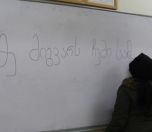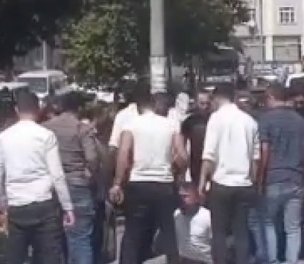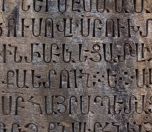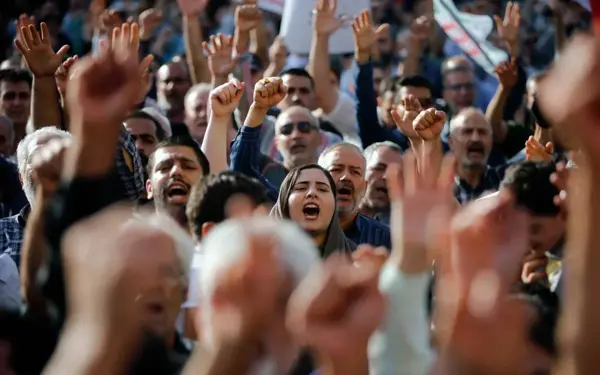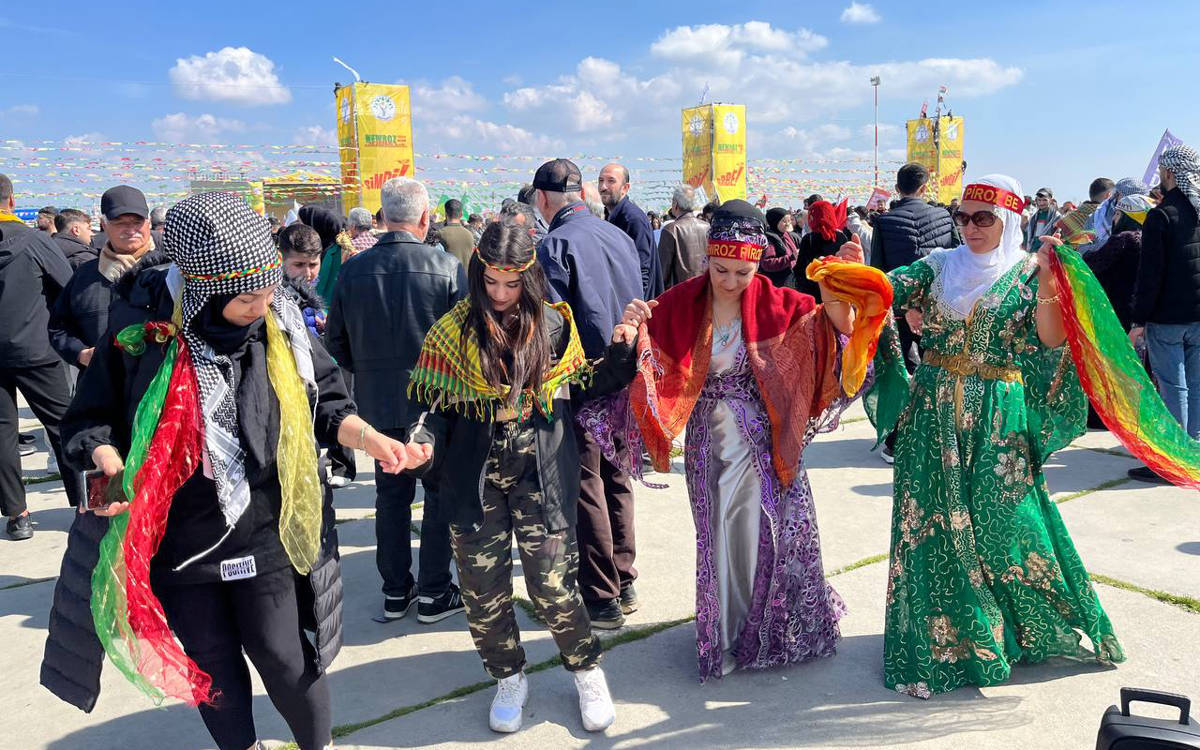Click to read the article in Turkish
The Republic [of Türkiye] pursued a policy to create a new "nation." A new identity started to be built which shaped the language policies of the Republic. Languages other than Turkish were denied. Assimilation policies were put forward, and single-language policies were implemented. These language policies resulted in excluding languages other than the language that the state has chosen from the public sphere, some languages to become extinct and some others to face this risk.
This language policy was developed in a way that it will be implemented in all spheres of social life as a state policy throughout the history of the Republic. The implementation also continues today.
The letters "X, W, Q, Î, Û, Ê" that are present and that are widely used in the Kurdish alphabet are banned since 1928. Many people using these letters stood trial and received prison sentences according to article 222 of the Turkish Criminal Code.
The Constitutional Court has ruled in April 2022 that banning a name including the letter "W" was not a violation. The Court decided that the ban was in line with the law on "Adaptation and Implementation of Turkish letters" [adopted in 1928].
Denial and assimilation
Kurds had some institutions that were constituted within their history before the Republic. Many newspapers and magazines were published in Kurdish in the period between 1890 - 1919, named Kürdistan, Amid-i Sevda, Peyman, Rojî Kurd, Yekbûn, Hetawî Kurd, the newspaper of the Kurdish Solidarity and Advance Association (Kürd Teavün ve Terakki Cemiyeti) and Jin. Most of them were located in İstanbul.
There were also newspapers published in Kurdish and associations carrying out activities in the Kurdish language in Diyarbakır. The education institutions of the Kurds in this same period were the madrasas. The education language in the madrasas was also Kurdish.
These institutions founded by Kurdish intellectuals, thanks to the relatively libertarian atmosphere in the last period of the Ottoman state were demolished after the foundation of the Republic.
The Republic was proclaimed on October 29, 1923. The presence of people known as Kurds, a language called Kurdish was denied, it was persistently argued that the Kurds were of Turkish origin, that the language called Kurdish was in fact a mountain dialect of Turkish, and that the word "Kurd" comes from the sounds of footsteps "kart-kurt" on the snow. All of these views were defended systematically until the 1990s.
Apart from the Kurds, these same policies were implemented toward other people speaking their own languages all around the country. They were also seen as a threat. Their languages, cultures, and even their presence were suppressed. Most were dislocated and Turkisized. These policies are still actual today.
Linguist J.B. Rudnyckyj sees one of the below carried out in order to make extinct or prevent the natural development of a language as strong proof of a "languacide."
- Imposing oppressive measures in order to prevent the organic, natural development of a language,
- Forcing the cultural development conditions of a bilingual community with the purpose of transforming it into a multilingual group,
- Rejecting the right of an ethnic group speaking another language the right to education in that language and its use in media against their will,
- Rejecting to support materially and morally the efforts of an ethnic group speaking another language to preserve its language and its cultural efforts.
All of the above described by Rudnyckyj were carried out against the Kurds throughout the history of the Republic, and they continue to be.
East Reform Decree still in force
All place names in Kurdish were changed with Turkish ones and speaking Kurdish was prohibited totally with the Law on Maintenance of Order (Takrir-i Sükûn Kânunu) adopted in the parliament on March 3, 1925, and the East Reform Plan Decree (Şark Islahat Planı) adopted on September 24, 1925.
Again many intellectuals, journalists, writers, and academicians writing in Kurdish were exiled or imprisoned in the republic period.
In 1959, a Kurdish article and a poem called "Qimil" were published in the İleri Yurt newspaper by Musa Anter in Diyarbakır and Anter stood trial for this.
The newspaper that started to be published in Kurdish in 1977, Roja Welat, was closed during martial law.
A more recent example of the pressure on Kurdish was law number 2932 enacted after the military coup of September 12, 1980, and annulled on January 25, 1991. However, it was seen very clearly that the annulment of the law was not real when towards the end of 1991 the Social Democratic People's Party (SHP) MP Leyla Zana spoke Kurdish in the opening ceremony of the parliament and was taken into custody paying no attention to her parliamentary immunity. She stayed in prison for years.
Today still, when the Kurdish MPs speak Kurdish in the parliament it is written in the minutes as "an unknown language."
In the 1990s the pressure on Kurdish was at an extreme level. It was nearly impossible to make a publication in Kurdish. There was great pressure on Kurdish art performances. The musicians and others founded associations in order to continue their work but these associations also faced pressure and the threat of being closed.
The Kurdish musician Ahmet Kaya was exiled after telling that he is going to sing in Kurdish and that he is going to shoot a video clip in a ceremony organized by the Magazine Journalists Association in 1999.
The regional boarding primary schools were known as the castles of assimilation. There were thousands of Kurdish students who had to study in these schools and who faced assimilation.
Azadiya Welat newspaper started to be published in 1992. On August 16, 2016, it was closed temporarily for "making terrorist propaganda" and then closed permanently with a decree on October 29, 2016. In 2018 no printing house agreed to publish the newspaper and the journalists photocopied the newspaper and sent it to the readers.
After 2000s
The Council of Higher Education (YÖK) approved the Kurdish Language and Literature departments to be opened at the universities on January 26, 2011. Kurdish language and literature departments were established in Mardin Artuklu, Muş Alparslan, and Bingöl universities, and Zaza language and literature departments in Bingöl and Dersim. A hundred students graduate from these departments each year ever since they were opened.
20 thousand new teachers were appointed in public schools in Türkiye in 2022 but only 3 Kurdish teachers were appointed for the Living Languages and Dialects department. There are thousands of Kurdish teachers waiting to be appointed in a country where more than 20 million Kurds live.
Tens of concerts of Kurdish musicians were banned in 2022. Governors, municipalities, or strict governors have not given permission to the concert halls where these concerts would be held.
The demand of the Kurds for education in their mother language has still not been met in the 100th year of the Republic. The policies of monolingualism are still actual.
Language rights
Language rights emerged as a result of the struggles of individuals, groups, and people against the effects of the assimilation strategies. These rights are defined in a way to respond to the needs of the individual for leading a meaningful life with her/his identity in society and to belong in the face of the language policies of the state. The importance and the meaning of the mother language also determine the importance of language rights. Mother tongue, which goes down deep into the subconscious, is regarded as the basic element of a person's identity, and establishing his/her bonds with society, is one of the most important means for a person for constituting herself/himself as a human being.
While we are leaving behind the first century of the Republic and entering a new one, the Kurds are still deprived of these means. One of the indicators of how the character of the Republic will be in the new century will be the policies to be developed for the language rights of the Kurds.
(AY/AÖ/PE)
One century, one regime, and the right to mother tongue
Language death, language suicide and Zaza language




.jpg)
.jpg)
.jpg)
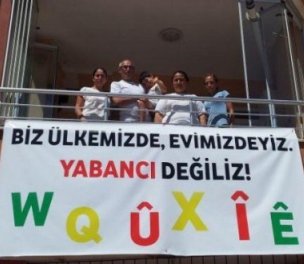
as.jpg)

sasa.jpg)

